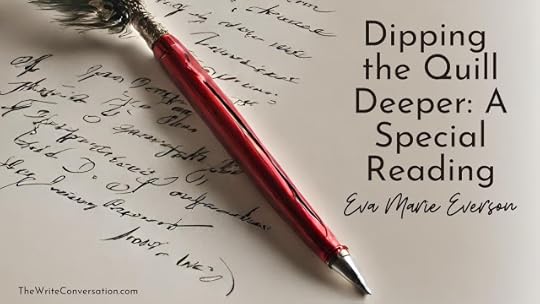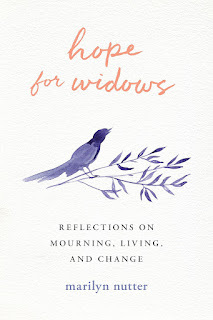Edie Melson's Blog, page 66
December 26, 2023
Does Genre Make a Difference in Writing Dialogue?

by DiAnn Mills @DiAnnMills
Writing is a creative art, but it does require a lot of work. Creating effective dialogue according to genre is one area that can easily slip by us without understanding the guidelines.
Romance
The story is about two people who are romantically involved. The plot focus is love—the characters must overcome differences, obstacles, and make sacrifices for the novel to end in a satisfying, happily-ever-after love relationship.
The dialogue is poetic and filled with metaphors and similes as the characters search for ways to describe their love and emotions outwardly and inwardly. The characters journey through a contemporary setting and see the world in unexpected beauty.
Writers can pair romance with many genres to add an extra thread to the plot and deepen characterization, such as historical romance and romantic suspense.
Historical
In historical fiction, the plot and setting take place no less than fifty years before the current time. The mood and tone of the story reflect culture, language, religion, historical period, social mannerisms, health problems, government control, and concerns of the people.
In historical fiction, specifically before the twentieth century, characters often spoke with more of an artful expression. The dialogue reflects the language of the era, social norms, living conditions, education, and other qualifying factors. People lived at a slower pace and took pride in their oral and written language—usually more formal, eloquent, and polite. Contractions were not used, but an exception would be a character who is uneducated. I caution the writer to leave some of the contractions for the contemporary reader’s ear. Regional expressions determine word choices for characters.
Fantasy
In a fantasy novel, the setting or story world is imaginary and mirrors a medieval universe. Quests, culture, magic, adventure, strange creatures, unrealistic circumstances, and social norms are at the whim of the writer. The supernatural makes the impossible seemingly possible but without technology.
Dialogue consists of invented words and like romance, the characters often tend to sound poetic. The writer who creates language for the fantasy inhabitants frequently explores legends and mythology from the Romans, Greek, Celtics, Far Eastern Lore, and/or a mixture to form specific words. I encourage the fantasy writer to develop the story world and language for a glossary. Informing the readers of story specifics makes it easier for them to enjoy the adventure.
Mystery, Suspense, and Thriller
These three genres are similar but with distinct differences.
A mystery involves a crime to solve. Usually, the main character is a detective or private eye who works throughout the story to find clues and solve a crime. A subgenre is the cozy mystery which has the violence occur in backstory or not visible to the reader. An amateur sleuth solves the crime.
A suspense builds anticipation for what will happen next. Often the protagonist battles a ticking clock which increases the tension. The writer uses apprehension and employs hold-your-breath excitement for what will happen next. High stakes, fast pacing, unexpected twists and turns, and red herrings add to the story’s appeal.
Thrillers are suspense novels taken to the next level. These stories are darker, and the high stakes have a deadly or catastrophic effect on many people. Fast pacing and fear play a large role in advancing the mood of this genre.
Dialogue for mystery, suspense, and thrillers relies on the characters’ background and story setting. If the protagonist’s career is in law enforcement, research the appropriate agency to learn the jargon, required training, job descriptions, home and family life, agency guidelines, and career expectations. Also investigate the setting because word choices and meanings differ from region to region. Interview a person in your character’s line of work. A hero doesn’t have to work for a federal or local law enforcement agency, but the character must have the skills and wisdom to overcome the enemy.
Science Fiction
In a sci-fi novel, the imaginary world is futuristic and uses technology beyond our current capabilities. The writer stretches scientific theories and principles to engage characters in plot and setting. World building is varied but all create environments based on life beyond the planet Earth as we currently know it.
Dialogue develops much like a contemporary novel with the criteria of a technology-advanced world in a surreal setting. Many writers establish a glossary of definitions, names, and places to root the reader in the story.
Other popular genres also require specific dialogue for the characters to remain true to their story: horror, western, young adult, dystopian, women’s fiction, biblical fiction, action/adventure, and the list goes on with sub-genre categories.
4 Tips for Writing Authentic Genre DialogueRead several books in your genre. Note rhythm, setting, word choice, emotion, and characterization.Read your dialogue aloud or use text-to-voice software.Know your characters and ascribe patterns of verbal and nonverbal communication.Study movies and films.
Our genre determines speech patterns for characters to communicate while striving to achieve a goal. Add emotion to create unpredictable dialogue, and the reader will be back for more.
*Reprinted by permission from Exploring the Art of Emotion and Dialogue by DiAnn Mills, Bold Vision Publishing
TWEETABLEDoes Genre Make a Difference in Writing Dialogue? from @DiAnnMills on @EdieMelson (Click to Tweet)
 DiAnn Mills is a bestselling author who believes her readers should expect an adventure. She creates action-packed, suspense-filled novels to thrill readers. Her titles have appeared on the CBA and ECPA bestseller lists; won two Christy Awards; and been finalists for the RITA, Daphne Du Maurier, Inspirational Readers’ Choice, and Carol award contests.
DiAnn Mills is a bestselling author who believes her readers should expect an adventure. She creates action-packed, suspense-filled novels to thrill readers. Her titles have appeared on the CBA and ECPA bestseller lists; won two Christy Awards; and been finalists for the RITA, Daphne Du Maurier, Inspirational Readers’ Choice, and Carol award contests. She is the former director of the Blue Ridge Mountain Christian Writers Conference, Mountainside Marketing Retreat, and Mountainside Novelist Retreat with social media specialist Edie Melson. Connect here: DiAnnMills.com
Published on December 26, 2023 22:00
December 25, 2023
Dipping the Quill Deeper: A Special Reading

by Eva Marie Everson @EversonAuthor
I can’t help it; this time of year, my mind slips back to my childhood, to Christmas tunes playing on Mother’s stereo—Bing Crosby, Frank Sinatra, Andy Williams—the tinsel on our tree dripping from branches like fine strands of lace, the chilly, inviting air outside, the counting down the days until Jolly Ole Saint Nick finally came. Seems to me that for so many years, my baby brother and I wore what we called “footy pajamas.” I can still hear the sound they made as our feet slapped against the hardwood floors of our home. Pitty-pat, pitty-pat, pitty-pat . . .
This time of year also takes me back to my “home church,” the First United Methodist in downtown Sylvania, Georgia . . . to the patina on the pews, the rich, thick carpet, the stained-glass windows. Although, truth be told, I cannot remember exactly when the stained-glass windows depicting the life of Christ were installed. It seems to me they were always there.
Similarly, the organ and piano, the curved prayer altar, and the choir loft with its massive oak cross hanging high overhead. This is where we children made our way to one evening during one special year that lives on in my heart. We marched from the vestibule, down the two aisles of the spacious, darkened sanctuary, our white robes billowing around us, our hands carrying flickering white candles. Angels we have heard on high, sweetly singing o’er the plains . . . we sang as if we were announcing the coming King ourselves, just as the angels had done nearly 2000 years before.
Two Wesley Boys
Methodism was the denomination of my childhood; it’s traditions and litanies are a precious part of my spiritual upbringing. And, like any good Methodist, I knew all about the Wesley boys—John (1703-1791) and his younger brother Charles (1707-1788), both leaders of a revival movement within the Church of England known as Methodism.
Now, before this starts sounding like a 7th grade book report, let me explain where I’m going with this post. Most people who know me well know that my favorite devotional book is titled A Guide to Prayer for Ministers and Other Servants. I especially enjoy the devotions and readings set for Advent, the first season of our church year, those blessed days and weeks which leads to Christmas. Within those readings are two from John and Charles and they always stir my heart.
Please allow me to share them with you now, Writer, as we approach our season of remembrance of the Coming Christ-child. I pray they will touch you as they touch me with each and every reading. Sometimes, they both leave me in absolute tears.
I am a creature of a day, passing through life as an arrow through the air. I am a spirit come from God and returning to God; just hovering over the great gulf, till, a few moments hence, I am no more seen; I drop into an unchangeable eternity. I want to know one thing—the way to heaven; how to land safe on that happy shore. God himself has condescended to teach the way, for this very end he came from heaven. He hath written it down in a book. O give me that book! At any price, give me the book of God! I have it; here is knowledge enough for me. Let me be homo unius libri.* (John Wesley)
~~~
Come, thou long-expected Jesus,Born to set thy people free;From our fears and sins release us;Let us find our rest in thee.Israel’s strength and consolation,Hope of all the earth thou art;Dear desire of every nation,Joy of every longing heart.
Born thy people to deliver,Born a child and yet a King,Born to reign in us forever,Now thy gracious kingdom bring.By thine own eternal spiritRule in all our hearts alone,By thine all sufficient merit,Raise us to thy glorious throne. Amen.
(Charles Wesley)
Merry Christmas, Writer . . . Merry, blessed Christmas, friend. Eva Marie Everson
*A man of one book.
TWEETABLEDipping the Quill Deeper: A Special Reading from @EversonAuthor on @EdieMelson (Click to Tweet)
 Eva Marie Everson is the CEO of Word Weavers International, the director of Florida Christian Writers Conference, and the contest director for Blue Ridge Mountains Christian Writers Conference. She is the multiple award-winning author of more than 45 books and countless articles and blogposts. She is also an award-winning speaker and a Bible teacher, a recipient of the Yvonne Lehman Award (2022), the AWSA Lifetime Achievement Award (2022), and the ECPA Gold Medallion (2023).
Eva Marie Everson is the CEO of Word Weavers International, the director of Florida Christian Writers Conference, and the contest director for Blue Ridge Mountains Christian Writers Conference. She is the multiple award-winning author of more than 45 books and countless articles and blogposts. She is also an award-winning speaker and a Bible teacher, a recipient of the Yvonne Lehman Award (2022), the AWSA Lifetime Achievement Award (2022), and the ECPA Gold Medallion (2023). Eva Marie is often seen at writers conferences across the States. She served as a mentor for the Jerry B. Jenkins Christian Writers Guild and taught as a guest professor at Taylor University in 2011. She and her husband make their home in Central Florida where they enjoy their grandchildren. They are owned by a cat named Vanessa.
Eva Marie's latest book, THE THIRD PATH JOURNAL, is a companion to her book, the AWSA Golden Scroll Book of the Year, THE THIRD PATH. The Third Path looks at 26 of the questions God asked in the Bible, then makes them personal to the reader. The premise of the book is currently her most asked for continuing workshop at writers conferences.
Published on December 25, 2023 22:00
December 24, 2023
Merry Christmas!

Today we're encouraging our contributors to spend time with the ones they love. We'll be back with regular posts tomorrow!
Love & Blessings,
Edie
Published on December 24, 2023 22:00
December 23, 2023
Eight Things I Learned About Writing from Charles Dickens & Ebenezer Scrooge
Edie here. I'm super excited to introduce you to author James C. Magruder. His post is a true gem! Please give him a warm TWC Welcome!

by James C. Magruder @JamesCMagruder
It’s Christmas time and what better event to attend than the theatrical production of Charles Dickens’ beloved story, A Christmas Carol. Fifteen family members attended with me in what has become an annual family tradition.
This moving story rejuvenates my Christmas spirit because, as Dickens intended, it speaks to the heart about love, charity, kindness, the plight of the poor, and human suffering, while inspiring all of us to make our life count.
At intermission, I gazed around the ornate Pabst Theater in Milwaukee and let my mind drift. How do you write a timeless classic? How did Dickens pen a story that strikes a chord in the heart and soul of everyone that reads it generation after generation?
A Christmas Carol is still the bestselling Christmas book of all time. Watching this story come to life reminds me of eight writing tips we can glean from Charles Dickens and his beloved character, Ebenezer Scrooge.
Writing Tips from Charles Dickens & Ebenezer Scrooge1. Write a story that resonates. Dickens hit on all the elements that create a good story. A flawed main character (Scrooge). Timing (Christmas time). Setting (London). Values (kindness, forgiveness, repentance, restitution). Uniqueness (The Ghosts of Christmas past, present and future). Conflict (Scrooge’s internal struggle to choose between love or money). Crisis (His impending death). Climax (His moment of decision). Resolution (His change of heart). Conclusion (Restored relationships, Tiny Tim survives).
2. Start with a memorable character. Who could be more memorable than irascible Ebenezer Scrooge? We love him despite his defects.
3. Write what you know. Writing 101 says “write what you know.” Dickens knew London; he lived there. He knew poverty; his parents were delivered to debtors’ prison while he, at 12, worked in a warehouse for six shillings a week.
4. Write with passion. Dickens’ sister-in-law wrote that she had never seen Dickens write with such fervor than when he wrote A Christmas Carol. In just six weeks he wrote a story for the ages. Within two months of its debut, eight theater companies adapted and mounted the story on stage. Critics hailed it “a national institution” a year later. It would become his most memorable work. He was 31.
5. Let your subconscious do some of the work. Like so many writers, Dickens got away from his work—to do his work. His sister-in-law once reported that he “walked about the black streets of London, fifteen or twenty miles, many a night” while plotting this endearing story.
6. Introduce an innovative element. Dickens used common literary techniques with flashback and flash-forward devices. Yet, he did it innovatively with the Ghosts of Christmas past, present and future.
7. Maintain a disciplined writing schedule. Dickens wrote steadily and fervently and completed this classic in six weeks. His masterpiece was published on December 19, 1843.
8. Give the reader something to chew on. This is perhaps the crowning achievement of this classic tale. It gives us pause every time we read it or see it. A question always lingers in my head. How can my life benefit others?
These are just a few writing tips to remember every Christmas from Charles Dickens. But what can we learn about being a better writer from crusty old Ebenezer Scrooge?
We can learn how a complex, multidimensional main character has the power to capture and captivate an audience—for generations. And, we can learn that although Charles Dickens made Ebenezer Scrooge, it’s also true that Ebenezer Scrooge made Charles Dickens.
Happy Holidays and Happy New Year.
TWEETABLEEight Things I Learned About Writing from Charles Dickens & Ebenezer Scrooge from @JamesCMagruder on @EdieMelson (Click to Tweet)
 James C. Magruder writes reflective essays and contemporary Christian fiction. He is author of The Glimpse, an inspirational novel and The Desert Between Us, releasing April 23, 2024. His articles have been published in Writer’s Digest, Writer’s Journal, eleven Chicken Soup for the Soul books, HomeLife and other magazines. He blogs about maximizing life by reducing the speed you live it in his blog called PAUSE MORE. RUSH LESS. You can follow him at: Jamescmagruder.com.
James C. Magruder writes reflective essays and contemporary Christian fiction. He is author of The Glimpse, an inspirational novel and The Desert Between Us, releasing April 23, 2024. His articles have been published in Writer’s Digest, Writer’s Journal, eleven Chicken Soup for the Soul books, HomeLife and other magazines. He blogs about maximizing life by reducing the speed you live it in his blog called PAUSE MORE. RUSH LESS. You can follow him at: Jamescmagruder.com.

by James C. Magruder @JamesCMagruder
It’s Christmas time and what better event to attend than the theatrical production of Charles Dickens’ beloved story, A Christmas Carol. Fifteen family members attended with me in what has become an annual family tradition.
This moving story rejuvenates my Christmas spirit because, as Dickens intended, it speaks to the heart about love, charity, kindness, the plight of the poor, and human suffering, while inspiring all of us to make our life count.
At intermission, I gazed around the ornate Pabst Theater in Milwaukee and let my mind drift. How do you write a timeless classic? How did Dickens pen a story that strikes a chord in the heart and soul of everyone that reads it generation after generation?
A Christmas Carol is still the bestselling Christmas book of all time. Watching this story come to life reminds me of eight writing tips we can glean from Charles Dickens and his beloved character, Ebenezer Scrooge.
Writing Tips from Charles Dickens & Ebenezer Scrooge1. Write a story that resonates. Dickens hit on all the elements that create a good story. A flawed main character (Scrooge). Timing (Christmas time). Setting (London). Values (kindness, forgiveness, repentance, restitution). Uniqueness (The Ghosts of Christmas past, present and future). Conflict (Scrooge’s internal struggle to choose between love or money). Crisis (His impending death). Climax (His moment of decision). Resolution (His change of heart). Conclusion (Restored relationships, Tiny Tim survives).
2. Start with a memorable character. Who could be more memorable than irascible Ebenezer Scrooge? We love him despite his defects.
3. Write what you know. Writing 101 says “write what you know.” Dickens knew London; he lived there. He knew poverty; his parents were delivered to debtors’ prison while he, at 12, worked in a warehouse for six shillings a week.
4. Write with passion. Dickens’ sister-in-law wrote that she had never seen Dickens write with such fervor than when he wrote A Christmas Carol. In just six weeks he wrote a story for the ages. Within two months of its debut, eight theater companies adapted and mounted the story on stage. Critics hailed it “a national institution” a year later. It would become his most memorable work. He was 31.
5. Let your subconscious do some of the work. Like so many writers, Dickens got away from his work—to do his work. His sister-in-law once reported that he “walked about the black streets of London, fifteen or twenty miles, many a night” while plotting this endearing story.
6. Introduce an innovative element. Dickens used common literary techniques with flashback and flash-forward devices. Yet, he did it innovatively with the Ghosts of Christmas past, present and future.
7. Maintain a disciplined writing schedule. Dickens wrote steadily and fervently and completed this classic in six weeks. His masterpiece was published on December 19, 1843.
8. Give the reader something to chew on. This is perhaps the crowning achievement of this classic tale. It gives us pause every time we read it or see it. A question always lingers in my head. How can my life benefit others?
These are just a few writing tips to remember every Christmas from Charles Dickens. But what can we learn about being a better writer from crusty old Ebenezer Scrooge?
We can learn how a complex, multidimensional main character has the power to capture and captivate an audience—for generations. And, we can learn that although Charles Dickens made Ebenezer Scrooge, it’s also true that Ebenezer Scrooge made Charles Dickens.
Happy Holidays and Happy New Year.
TWEETABLEEight Things I Learned About Writing from Charles Dickens & Ebenezer Scrooge from @JamesCMagruder on @EdieMelson (Click to Tweet)
 James C. Magruder writes reflective essays and contemporary Christian fiction. He is author of The Glimpse, an inspirational novel and The Desert Between Us, releasing April 23, 2024. His articles have been published in Writer’s Digest, Writer’s Journal, eleven Chicken Soup for the Soul books, HomeLife and other magazines. He blogs about maximizing life by reducing the speed you live it in his blog called PAUSE MORE. RUSH LESS. You can follow him at: Jamescmagruder.com.
James C. Magruder writes reflective essays and contemporary Christian fiction. He is author of The Glimpse, an inspirational novel and The Desert Between Us, releasing April 23, 2024. His articles have been published in Writer’s Digest, Writer’s Journal, eleven Chicken Soup for the Soul books, HomeLife and other magazines. He blogs about maximizing life by reducing the speed you live it in his blog called PAUSE MORE. RUSH LESS. You can follow him at: Jamescmagruder.com.
Published on December 23, 2023 22:00
December 22, 2023
Grow Your Online Reach with These 10 Tips for Submitting Blog Posts & Articles Online

by Edie Melson @EdieMelson
One excellent way to grow your visibility and readership is through contributing to articles and posts to other websites. This can be done through a single guest post or by becoming a regular, contributing, writer on a site that’s not your own.
While website and blog owners are always looking for new content, they are protective of the communities they’ve nurtured and only willing to accept contributions that benefit that community.
10 Tips To Help Get Your Guest Post Submissions Noticed
1. Get to know the community. Don’t stop with reading the guest post or article submission guidelines. Study the site and pay attention to the content that’s already there.
2. Follow the guidelines. This isn’t a place to get creative, if the submission guidelines say they only accept submission that are 700-900 words, don’t send a 1200 word article.
3. Pay attention to the most popular posts. Figure out the types of posts the community build around the site enjoys. You’ll be able to tell by looking at the comments and shares of specific posts.
4. Find a niche that fits your knowledge base. As you study a site, look for areas where you could provide content. For example, Karen Whiting looked at my site and saw I was light in the area of author marketing tips. That was what she proposed when she asked to become a contributing writing. I already knew I was weak there and snapped her up in a second!
5. Don’t go outside to the site’s focus. I get daily proposals from people who want to write an article about unrelated topics, such as mental health, dog care, and how to repair a computer. I don’t even bother to answer. If the person submitting didn’t even take two minutes to see what the obvious focus of my site is, I feel no obligation to taking my valuable time to answer them.
6. Learn how to write for the internet. Writing online articles and blog posts is a very different craft than writing for print outlets. Site owners don’t generally have time to educate you on how to do this. If you’re proposing to write for an online outlet, it’s assumed you have that skill in your wheelhouse.
7. Follow the deadlines scrupulously. Submission deadlines are important and they’re usually NOT much wiggle room. Professional bloggers need to have posts and articles up several weeks ahead of the actual publish date. This allows time for keyword research and image selection to make sure each post is top notch.
8. Include a professional bio. Actually you should have several—of differing word-count lengths. This bio is your calling card and enables those who read your article will be able to find you and your work.
9. Be ready on the day your article goes live to promote it. Your benefit for writing for a different site is being exposed to a new audience. The site owner’s benefit is the same—their site is exposed to the new audience you bring to the picture. If you’re not willing to promote the article on the day it’s published, you aren’t holding up your end of the deal. A contributor who doesn’t promote (or answer comments, see #10 below) probably won’t be asked back.
10. Go back and answer comments. If the site you’re contributing to allows comments, be sure to check in several times on the day your post goes live to answer comment questions and thank those who leave a comment. If the site posts less than every day, I usually check in several times before the next article/post goes live to make sure I don’t miss anyone who is kind enough to take time and comment.
These tips won’t always guarantee acceptance, but they will ensure you stand out in the crowd and make the site owner more likely to accept you in the future.
Now it’s your turn, what would you add to my list? Share your thoughts in the comments section below.
Don’t forget to join the conversation!Blessings,Edie
TWEETABLEGrow Your Online Reach with These 10 Tips for Submitting Blog Posts & Articles Online - @EdieMelson (Click to Tweet)
 Edie Melson is a woman of faith with ink-stained fingers observing life through the lens of her camera. No matter whether she’s talking to writers, entrepreneurs, or readers, her first advice is always “Find your voice, live your story.” As an author, blogger, and speaker she’s encouraged and challenged audiences across the country and around the world. Her numerous books reflect her passion to help others develop the strength of their God-given gifts and apply them to their lives. Connect with her on her website, through Facebook, Twitter and Instagram.
Edie Melson is a woman of faith with ink-stained fingers observing life through the lens of her camera. No matter whether she’s talking to writers, entrepreneurs, or readers, her first advice is always “Find your voice, live your story.” As an author, blogger, and speaker she’s encouraged and challenged audiences across the country and around the world. Her numerous books reflect her passion to help others develop the strength of their God-given gifts and apply them to their lives. Connect with her on her website, through Facebook, Twitter and Instagram.
Published on December 22, 2023 22:00
December 21, 2023
Feral Cats and Feral Writing – 4 Tips to Tame the Wild Words in Your Manuscript

by Lori Hatcher @LoriHatcher2
It’s not every day I wrestle a feral cat before sunup.
But there I was, in the woods of Sandy Run, South Carolina. When you live in the country as my mom does, animals mysteriously appear on your doorstep. Possums and racoons. Dogs with matted fur and ribs showing through their skin. And cats. Lots of cats.
Feral cats with round bellies that produce miniature feral cats. Hence my observation about cats. Lots of cats.
Which brings me to my early morning wrestling match. Momma cat, affectionately named Mawie, was due to be spayed. Her kittens, Peanut Butter and Jelly, were weaned, and it was time to end the kitten parade.
Mom had managed to contain Mawie on the screened porch, but it was a big porch. With lots of hiding places. And the cat carrier was small. Very small. Too small, apparently, to stuff a whirling dervish of claws and teeth and tail into the opening.
Did you know feral cats don’t meow like domesticate cats? The normal vocalizations we expect from house cats is a learned behavior that comes with contact with humans. So feral cats don’t meow. But they do howl. Loudly and terrifyingly as they claw at everything within six feet of them.
Including me.
End of Chapter 1: Cat:1, Humans: 0.
As I smeared Neosporin on a scratch the length of I-95 and pondered our encounter, it reminded me of the writing project I’m editing—a 118,000 word memoir. And no, that extra zero isn’t a typo.
In attempting to stuff it into a smaller literary box than its fearsome size will allow, I’ve employed a few tips you may find helpful as you edit your work.
Tips to Tame Wild Words in Your Writing
1. Eliminate filler words.
The most common filler words I find are that, so, very, and really. Use the search feature on your computer to look for each word, then read the sentence without it. If it still makes sense, you don’t need the word.
“I reached for the cat that she trapped in the screened porch,” becomes “I reached for the cat she trapped in the screen porch” with nary a hiss.
2. Remove unnecessary words.
Often, an author writes the way they speak. Unfortunately, words that are acceptable in conversation often bog down a written narrative. Edit “I think this is when I began to realize that feral cats are evil” to, “I realized feral cats are evil,” and your readers will scamper right through your scene.
3. Cut out “began to.”
In most cases, “began to” is unnecessary. “I began to approach the cat,” “My heart began to pound,” “I began to wipe the blood off my arm.” Instead, write, “I approached the cat,” “My heart pounded,” and “I wiped the blood off my arm, my hand, and my face.”
“Began to” is only appropriate when a character starts an action and is interrupted. For example: “I began to stuff the cat into the cat carrier, but when she clawed me, I dropped her and ran.”
4. Snip out “I believe that.”
Your readers assume you believe what you say or you wouldn’t have written it, so “I believe that” is unnecessary. If you’re sure enough to write it, own it. Turn, “I believe feral cats are the most vicious animals ever created,” into “Feral cats are the most vicious animals ever created.” You’ll have a stronger and more concise declaration. (You’ll also eliminate an unnecessary that in the process and warn the world.)
If you follow these four tips to eliminate unnecessary words from your manuscript, you’ll produce a narrative that purrs like a kitten and fits neatly into the wordcount framework appropriate for your genre.
If you don’t, I believe that you’ll begin to encounter some very real obstacles to serious publication. Really.
Now, back to Sandy Run to set a trap for Mawie. Y’all pray for me.
TWEETABLEFeral Cats and Feral Writing – 4 Tips to Tame the Wild Words in Your Manuscript @LoriHatcher2 on @EdieMelson (Click to Tweet)
 Lori Hatcher loves to inspire and equip others through the written and spoken word. A popular women’s ministry speaker and writing/speaking instructor, Lori is an Advanced Communicator Gold and Advanced Leader Bronze with Toastmasters International. She writes for Our Daily Bread, Guideposts, Revive Our Hearts, and Crosswalk.com. Check out her latest devotional, Refresh Your Hope, 60 Devotions for Trusting God with All Your Heart, from Our Daily Bread Publishing. Connect with her at LoriHatcher.com or on FACEBOOK, TWITTER(@lorihatcher2) or PINTEREST(Hungry for God).
Lori Hatcher loves to inspire and equip others through the written and spoken word. A popular women’s ministry speaker and writing/speaking instructor, Lori is an Advanced Communicator Gold and Advanced Leader Bronze with Toastmasters International. She writes for Our Daily Bread, Guideposts, Revive Our Hearts, and Crosswalk.com. Check out her latest devotional, Refresh Your Hope, 60 Devotions for Trusting God with All Your Heart, from Our Daily Bread Publishing. Connect with her at LoriHatcher.com or on FACEBOOK, TWITTER(@lorihatcher2) or PINTEREST(Hungry for God).
Published on December 21, 2023 22:00
December 20, 2023
Make a Plan for Dealing with Writing Stress BEFORE It Happens

by Edie Melson @EdieMelson
We're coming to the end of another year and it's time to get ready for 2024. One thing I can predict for the next year with absolute certainty is the fact that it will have seasons of writing stress. So instead of figuring out how to cope with these unwelcome times, let's be ready for them with a list of tips on how to deal with them!
12 Tips for How to Cope with Seasons of Writing Stress
1. Take your fears and feelings to God. Begin with prayer, but take it a step further. Journal your prayers and what you feel God is saying to you. When we begin with a connection to the Father, the other things we do to cope are more productive.
2. Stay connected to the present. This is also a kind of non-judgmental mindfulness. Look honestly at your situation and evaluate what's bugging you. Examine and emphasize the differences between truth and lies. Don’t beat yourself up for your feelings, instead study them and acknowledge what you’ve learned and apply that.
3. Start a journal. Give yourself the gift of a place to pour out your feelings. I’ve found that especially for writers, writing down the confusing emotions we’re dealing with brings order. Give yourself permission to be messy. Don’t try to write only once a day in an orderly fashion. Instead write when you feel like it. It may be several times a day or only a few times a week. The important thing is that you have a place to pour out what you’re dealing with.
4. Surround yourself with good smells. Yep, aromatherapy can actually help. Use essential oils, candles, and even soothing lotions. Our mood is affected by the odors around us. Be deliberate about enhancing that part of your environment. I’ve begun lighting a certain candle when I write. Now I’ve got a kind of Pavlov’s Dog situation. When I catch a whiff of that candle, I’m almost instantly in the mood to write.
5. Avoid caffeine, tobacco and alcohol. Yes, we’re writers and we are caffeine-fueled word machines…sometimes. Now is not that time. Instead find a beautiful glass, fill it with sparkling ice cubes, a slice of fruit and fresh water. Hydrate your water-starved body. Need something warm? Choose an herbal tea.
6. Walk away regularly. You may find yourself on a deadline again, but the time you spend on a short walk or another healthy exercise will make you MORE productive. If you’re a knitter, spend an hour with yarn and needles. Pull out your Bible journal or bullet journal and let creativity reign. Whatever renews your spirit is what you need to build into your routine.
7. Find a support group. You are not the only one who has ever experienced this. You are not weak or stupid or defective. Listening to those lies isolates us from the community we desperately need right now. In addition to leaning into God, find His people, open up, and let them support you. When you’re feeling better, you can return the favor.
8. Don’t neglect physical activity. Go for a walk, take a hike, but most of all—work up a sweat. You need those endorphins right now. By getting back into a regular exercise routine you’ll also bring order from chaos.
9. Weed out the unnecessary. Now isn’t the time to add to your work load. Instead look for things you can drop from your regular routine. Cut back on social media, subscribe to a meal service and let that hall closet rest without cleaning it out.
10. Unplug from your electronics. Yes part of being a writer in 2020 is having an active online presence. But this does NOT mean 24-7. Resolve to check your phone only a few times a day. Otherwise, leave it in the other room. Consider even writing old school. Walk away from your computer, pick up a pen and record your ideas on actual paper.
11. Refuse to give in to shame. We have all been where you are. But when we all hide it shame creeps in. Instead be the brave one who admits life can be overwhelmingly stressful. You’ll find freedom in that and release others from their bondage in the process.
12. Prioritize daily and weekly. Every evening I use my bullet journal to make a list for the next day. By recording my to-dos then, I free up my first-thing-in-the-morning for time with God. I also keep a running list for the week so I don’t forget anything vital. I’m developing the habit of NOT looking at my phone or email until after I’ve had some precious time with God. Knowing I already have a list, frees me from the stress of feeling like I’m already behind when I climb into my work-mode.
The biggest thing to remember is that we’re not alone. Being a writer can lead to an incredible life, but it can also bring extreme times of difficulty. With these tips you can begin to recover from the stressful times and help others in the process.
Now it’s your turn. What would you add to my list of ways to cope? Be sure to leave your thoughts in the comment section below.
Don’t forget to join the conversation!Blessings,Edie
TWEETABLEMake a Plan for Dealing with Writing Stress BEFORE It Happens from @EdieMelson (Click to Tweet)
 Edie Melson is a woman of faith with ink-stained fingers observing life through the lens of her camera. No matter whether she’s talking to writers, entrepreneurs, or readers, her first advice is always “Find your voice, live your story.” As an author, blogger, and speaker she’s encouraged and challenged audiences across the country and around the world. Her numerous books reflect her passion to help others develop the strength of their God-given gifts and apply them to their lives. Connect with her on her website, through Facebook, Twitter and Instagram.
Edie Melson is a woman of faith with ink-stained fingers observing life through the lens of her camera. No matter whether she’s talking to writers, entrepreneurs, or readers, her first advice is always “Find your voice, live your story.” As an author, blogger, and speaker she’s encouraged and challenged audiences across the country and around the world. Her numerous books reflect her passion to help others develop the strength of their God-given gifts and apply them to their lives. Connect with her on her website, through Facebook, Twitter and Instagram.
Published on December 20, 2023 22:00
December 19, 2023
How Personal Journal Entries Can Spark Ideas for Publication
Edie here. Today I'm thrilled to introduce you to an author who is a dear friend of mine. I've been praying for her latest book, Hope for Widows: Reflections on Mourning, Living, and Change, for a long time. It recently hit store shelves and I'm thrilled to have her share a guest post and give you the link to her book below. Give her a warm TWC welcome!

How Personal Journal Entries Can Spark Ideas for Publicationby Marilyn Nutter @MarilynNutter
A lot happens at a writing conference. Sometimes we have “aha” moments during a keynote or worship. We learn through workshops and classes. We pray for an appointment with an editor who we hope will respond to our one sheet. But sometimes, meaningful moments surface over a meal in the dining hall.
I had re-entered the writing world, attending a conference, after a break following the death of my husband. As my friend and I chatted over dinner, she asked what my current work in progress was.
“That’s why I’m here—to figure my next steps. So far, I’ve only written in my daily journals.”
“Have you considered writing articles from what you’re learning?”
“I record my personal thoughts and grief journey,” I answered. “I’m not sure anyone wants to hear another widow story.”
“But you are unique and can help someone else.”
Those powerful words served as a turning point, an “aha” moment, that set me on a course of using my struggles to help someone. Out of my personal journals and experiences, came articles, blog posts, and two books.
Perhaps you are thinking the same. How can my experience help someone? I’ll share with you my process and the questions I thought were essential to answer when I attempted to follow my friend’s encouragement to write for publication.
Questions to Help Us Write About Personal ExperiencesIdentify your experience. Did it result from a death, divorce, illness, betrayal of a friend, financial reversal? Who is the target audience waiting for your message? Examine your thoughts and emotions. Are you puzzled, blindsided, concerned, angry?How are you managing to process thoughts? Are you seeking outside help? Are you finding wisdom and comfort in Scripture?What are you learning about yourself? Have you made discoveries about people, circumstances, and situations in your story?Who is God in this experience? What is He teaching you? Have you found a scriptural theme? Have you found a predominant scripture that is guiding you?What can you show your reader about your experience that would be helpful?Can I be transparent without compromising confidentiality, remembering that this is my story, not naming other people in it, unless it is something positive? What’s my goal? How can my experience benefit others? Do I want to give information, insight, a new perspective? How can I offer encouragement to show readers they aren’t alone? Will my words be life giving to readers? Will they have a personal take away? After I returned home I prayed and reviewed my journals. In turning my pages, I was reminded how in my grief and loss, I met and knew God in new ways. I had grown and learned new things about myself and others who reached out in support—and those who didn’t. I didn’t approach writing about loss as a counselor or even attempting to fix a problem. My goal was to link arms with readers in support for their healing path.
The words “You can help someone” changed me and my writing. What about you? Have your recorded your path in a life changing experience in your journals? How have you seen God work in and through it? How do you think you can use it—how can God use it—to help someone?
TWEETABLEHow Personal Journal Entries Can Spark Ideas for Publication from author @MarilynNutter on @EdieMelson (Click to Tweet)
 Hope for Widows: Reflections on Mourning, Living, and Changeby Marilyn Nutter
Hope for Widows: Reflections on Mourning, Living, and Changeby Marilyn Nutter
Hope for Widows is a valuable source of encouragement and comfort as you adjust to your new normal and reimagine an active life with purpose in your future. With personal reflections, questions, and expressions of gratitude, join Marilyn Nutter in recognizing God’s faithful presence in details and unusual places.
Having lost her husband of 42 years, Marilyn offers 65 brief readings that cover widows’ universal experiences with empathy and poignant honesty. She applies Scripture to grief and mourning and looks with transparency at how widowhood dramatically changes a woman’s life. Amid the readings are opportunities to journal treasured memories, reflect on the additional losses that accompany the death of a spouse, and appreciate unexpected gifts.
This book presents the truth of Scripture to combat lies you may be prone to believe in your newly single life, shares quotes related to loss, offers prayers from the Bible, and provides exercises to build trust by looking at the character of God from A to Z. Read this book on your own or find topics helpful for discussion in women’s ministries or grief support groups.
Though nothing can fix this irreversible loss, Hope for Widows offers connections in your grief, guiding you to see hope, grace, and camaraderie on an unfamiliar path.
 Marilyn Nutter loves finding treasures in unexpected places: gratitude in mulch, conversations with grandchildren, and old family recipes. Most of all she has found the treasure of hope in loss. Unexpectedly widowed after forty-two years of marriage, Lamentations 3:22-23 has been a brilliant treasure. Reflections from her journals and life experience since the sudden death of her husband, developed into articles, blogs, and two books. One is an award winning book with April White, Destination Hope: A Travel Companion When Life Falls Apart. Her newest book, Hope for Widows: Reflections on Mourning, Living, and Change will be released in January 2024 and is up for pre-order on Amazon. Connect with Marilyn at marilynnutter.com and read about weaving hope and purpose in your life stories.
Marilyn Nutter loves finding treasures in unexpected places: gratitude in mulch, conversations with grandchildren, and old family recipes. Most of all she has found the treasure of hope in loss. Unexpectedly widowed after forty-two years of marriage, Lamentations 3:22-23 has been a brilliant treasure. Reflections from her journals and life experience since the sudden death of her husband, developed into articles, blogs, and two books. One is an award winning book with April White, Destination Hope: A Travel Companion When Life Falls Apart. Her newest book, Hope for Widows: Reflections on Mourning, Living, and Change will be released in January 2024 and is up for pre-order on Amazon. Connect with Marilyn at marilynnutter.com and read about weaving hope and purpose in your life stories.

How Personal Journal Entries Can Spark Ideas for Publicationby Marilyn Nutter @MarilynNutter
A lot happens at a writing conference. Sometimes we have “aha” moments during a keynote or worship. We learn through workshops and classes. We pray for an appointment with an editor who we hope will respond to our one sheet. But sometimes, meaningful moments surface over a meal in the dining hall.
I had re-entered the writing world, attending a conference, after a break following the death of my husband. As my friend and I chatted over dinner, she asked what my current work in progress was.
“That’s why I’m here—to figure my next steps. So far, I’ve only written in my daily journals.”
“Have you considered writing articles from what you’re learning?”
“I record my personal thoughts and grief journey,” I answered. “I’m not sure anyone wants to hear another widow story.”
“But you are unique and can help someone else.”
Those powerful words served as a turning point, an “aha” moment, that set me on a course of using my struggles to help someone. Out of my personal journals and experiences, came articles, blog posts, and two books.
Perhaps you are thinking the same. How can my experience help someone? I’ll share with you my process and the questions I thought were essential to answer when I attempted to follow my friend’s encouragement to write for publication.
Questions to Help Us Write About Personal ExperiencesIdentify your experience. Did it result from a death, divorce, illness, betrayal of a friend, financial reversal? Who is the target audience waiting for your message? Examine your thoughts and emotions. Are you puzzled, blindsided, concerned, angry?How are you managing to process thoughts? Are you seeking outside help? Are you finding wisdom and comfort in Scripture?What are you learning about yourself? Have you made discoveries about people, circumstances, and situations in your story?Who is God in this experience? What is He teaching you? Have you found a scriptural theme? Have you found a predominant scripture that is guiding you?What can you show your reader about your experience that would be helpful?Can I be transparent without compromising confidentiality, remembering that this is my story, not naming other people in it, unless it is something positive? What’s my goal? How can my experience benefit others? Do I want to give information, insight, a new perspective? How can I offer encouragement to show readers they aren’t alone? Will my words be life giving to readers? Will they have a personal take away? After I returned home I prayed and reviewed my journals. In turning my pages, I was reminded how in my grief and loss, I met and knew God in new ways. I had grown and learned new things about myself and others who reached out in support—and those who didn’t. I didn’t approach writing about loss as a counselor or even attempting to fix a problem. My goal was to link arms with readers in support for their healing path.
The words “You can help someone” changed me and my writing. What about you? Have your recorded your path in a life changing experience in your journals? How have you seen God work in and through it? How do you think you can use it—how can God use it—to help someone?
TWEETABLEHow Personal Journal Entries Can Spark Ideas for Publication from author @MarilynNutter on @EdieMelson (Click to Tweet)
 Hope for Widows: Reflections on Mourning, Living, and Changeby Marilyn Nutter
Hope for Widows: Reflections on Mourning, Living, and Changeby Marilyn NutterHope for Widows is a valuable source of encouragement and comfort as you adjust to your new normal and reimagine an active life with purpose in your future. With personal reflections, questions, and expressions of gratitude, join Marilyn Nutter in recognizing God’s faithful presence in details and unusual places.
Having lost her husband of 42 years, Marilyn offers 65 brief readings that cover widows’ universal experiences with empathy and poignant honesty. She applies Scripture to grief and mourning and looks with transparency at how widowhood dramatically changes a woman’s life. Amid the readings are opportunities to journal treasured memories, reflect on the additional losses that accompany the death of a spouse, and appreciate unexpected gifts.
This book presents the truth of Scripture to combat lies you may be prone to believe in your newly single life, shares quotes related to loss, offers prayers from the Bible, and provides exercises to build trust by looking at the character of God from A to Z. Read this book on your own or find topics helpful for discussion in women’s ministries or grief support groups.
Though nothing can fix this irreversible loss, Hope for Widows offers connections in your grief, guiding you to see hope, grace, and camaraderie on an unfamiliar path.
 Marilyn Nutter loves finding treasures in unexpected places: gratitude in mulch, conversations with grandchildren, and old family recipes. Most of all she has found the treasure of hope in loss. Unexpectedly widowed after forty-two years of marriage, Lamentations 3:22-23 has been a brilliant treasure. Reflections from her journals and life experience since the sudden death of her husband, developed into articles, blogs, and two books. One is an award winning book with April White, Destination Hope: A Travel Companion When Life Falls Apart. Her newest book, Hope for Widows: Reflections on Mourning, Living, and Change will be released in January 2024 and is up for pre-order on Amazon. Connect with Marilyn at marilynnutter.com and read about weaving hope and purpose in your life stories.
Marilyn Nutter loves finding treasures in unexpected places: gratitude in mulch, conversations with grandchildren, and old family recipes. Most of all she has found the treasure of hope in loss. Unexpectedly widowed after forty-two years of marriage, Lamentations 3:22-23 has been a brilliant treasure. Reflections from her journals and life experience since the sudden death of her husband, developed into articles, blogs, and two books. One is an award winning book with April White, Destination Hope: A Travel Companion When Life Falls Apart. Her newest book, Hope for Widows: Reflections on Mourning, Living, and Change will be released in January 2024 and is up for pre-order on Amazon. Connect with Marilyn at marilynnutter.com and read about weaving hope and purpose in your life stories.
Published on December 19, 2023 22:00
December 18, 2023
7 Ways for Writers to Guard Our Focus

by Dr. Katherine Hutchinson-Hayes @KHutch0767
Whenever the year comes to an end, I often find it challenging to drum up the passion to complete my to-do lists while also preparing for the upcoming season. I’m constantly guarding my focus to finish strong. As an author, staying motivated throughout the year can be difficult. Sometimes, we confuse passion with motivation. However, the truth is that we don't always have to feel passion or inspired to write. What matters most is showing up and committing to the task at hand.
Sometimes, I find it hard to motivate myself to go to the gym and work out. However, I have come to realize that I have never regretted the time I spent exercising. In fact, I always feel glad that I followed through with my commitment to myself. The results of working out are always worth it. Similarly, when it comes to writing, the process of getting the right result is what truly matters. It may not always be easy to sit down and write, but the result is always worth the effort. Whether it takes a few drafts or a lot of editing, the important thing is that we keep pushing ourselves to achieve the best possible outcome.
As a writer, it's common to feel isolated and disheartened when progress seems slow. However, there are various strategies that can help us stay motivated and on track toward achieving our writing objectives. By implementing these techniques, we can maintain our focus and momentum, even during challenging times.
Guard Your Writing Focus with These 7 Tips
1. Create Small Attainable Goals
It's important to set daily goals that are achievable and realistic. When we set goals that are too lofty or difficult, we can become overwhelmed and discouraged, which can lead to giving up altogether. Instead, it's best to create a plan of action with clear and specific goals that we can realistically attain. This will help us stay motivated and focused and increase our chances of successfully following through with our plans. Take some time to think about what you want to accomplish each day, and set goals that are challenging yet achievable. With a little effort and determination, we can make progress towards our goals and achieve success.
2. Focus on the Reader
It's crucial to always keep our readers in mind. We should envision the reader as a single person and write specifically for them as if our lives depended on it. This laser-like focus helps us to hone in on our craft, genre, and audience in a more specific manner. By doing so, we can create content that resonates with our readers and keeps them engaged. It's important to remember that our readers are the reason we write, and we should always strive to provide them with the best possible experience.
3. Remember Your Purpose
As authors, we primarily aim to use our writing to share our faith and inspire others. Our words have the power to touch people's hearts and transform their lives. Therefore, we must remember this purpose as we write and let it motivate us to keep going even when the writing process gets tough. We must strive to create content that is engaging and informative and reflects our values and beliefs. By doing so, we can positively impact our readers and help them grow in their faith.
4. Set Achievable Goals
When it comes to achieving our writing goals, it's important to set realistic and attainable targets. One effective way to do this is by breaking down our project into smaller, more manageable tasks. By doing so, we can avoid feeling overwhelmed and stay motivated throughout the writing process. Additionally, setting deadlines for each task can help us stay on track and ensure that we make steady progress toward our goal. As we complete each task, we'll feel a sense of accomplishment and be more motivated to continue working toward our larger writing project.
5. Find a Writing Community
Writing can often feel like a solitary activity, but it doesn't have to be that way. We can benefit greatly from joining a writing group or community. These groups provide a supportive environment where we can share our work, receive constructive feedback, and find motivation to keep going. Being part of a writing community can also help us connect with other writers who share our interests and goals, and who can offer valuable insights and advice. Whether we're just starting out or have been writing for years, joining a writing group can be a great way to improve our craft and find the support we need to succeed.
6. Take Breaks
As writers, it's crucial to prioritize our mental and physical well-being. Taking regular breaks from writing can help us avoid burnout and maintain our creativity and productivity. By stepping away from our work and engaging in activities that bring us joy and relaxation, we can recharge our batteries and return to our writing with a fresh perspective and renewed energy. Be sure to carve out time for self-care and leisure, and not let our writing consume us entirely.
7. Pray
It can be challenging to stay motivated and inspired throughout the creative process. That's why prayer is an essential part of an author's routine. By seeking guidance, inspiration, and strength from God, we can tap into a source of creativity that goes beyond our abilities. When we pray, we acknowledge that our gift of writing comes from God, and we ask for His help in using it to glorify Him. By doing so, we can find renewed purpose and motivation in our work, knowing that we are not alone in our efforts. If we're feeling stuck or discouraged in our writing journey, take a moment to pray and ask for God's guidance. We may be surprised at the inspiration and clarity that comes our way.
Maintaining motivation as a writer requires a combination of purpose, achievable goals, community, rest, and prayer. By keeping these things in mind, we can stay focused on our writing goals and continue to inspire others through our work. Remember that our words have the power to impact lives and make a difference in the world.
TWEETABLE7 Ways for Writers to Guard Our Focus from @KHutch0767 on @EdieMelson (Click to Tweet)
 Dr. Katherine Hutchinson-Hayes is a review board member and contributor to Inkspirations (an online magazine for Christian writers), and her writing has been published in Guideposts. Her work in art/writing is distinguished by awards, including the New York Mayor’s Contribution to the Arts, Outstanding Resident Artist of Arizona, and the Foundations Awards at the Blue Ridge Mountains Christian Writer’s Conference (2016, 2019, 2021). She is a member of Word Weavers International and serves as an online chapter president and mentor. She belongs to FWA (Florida Writers Association), ACFW (American Christian Fiction Writers), CWoC (Crime Writers of Color),
Dr. Katherine Hutchinson-Hayes is a review board member and contributor to Inkspirations (an online magazine for Christian writers), and her writing has been published in Guideposts. Her work in art/writing is distinguished by awards, including the New York Mayor’s Contribution to the Arts, Outstanding Resident Artist of Arizona, and the Foundations Awards at the Blue Ridge Mountains Christian Writer’s Conference (2016, 2019, 2021). She is a member of Word Weavers International and serves as an online chapter president and mentor. She belongs to FWA (Florida Writers Association), ACFW (American Christian Fiction Writers), CWoC (Crime Writers of Color),AWSA (Advanced Writers and Speakers Association), and AASA (American Association of School Administrators). She serves on the nonprofit organization Submersion 14 board and the 540 Writer’s Community board and is an art instructor for the nonprofit organization Light for the Future. Katherine hosts the podcast Murder, Mystery & Mayhem Laced with Morality. She has authored a Christian Bible study for women and is currently working on the sequel to her first general market thriller novel. Her thriller A Fifth of the Story will debut in February 2024 through Endgame Press.
Katherine flourishes in developmental editing and coaching writers. She has a twenty-year career in education, leadership, and journalism. Katherine freelances as an educational consultant for charter schools, home school programs, and churches. In this role, she has written and edited curriculum, led program development, and helped manage growth facilitating and public relations.
She also works as an editor and book coach through her consulting business. Katherine provides skill, accountability, and professionalism so clients can begin, develop, and finish their writing projects for publication.
Published on December 18, 2023 22:00
December 17, 2023
The Right Endorsers to Promote Your Book

by Karen Whiting @KarenHWhiting
Endorsers can make a big difference for marketing a book, but too often authors lazily just ask other authors to endorse. Those authors tend to be busy promoting their own books so they can affirm your message but may not help promote it. Look beyond for real influencers who can impact sales.
Finding Credible Influencers
Know your readers and the issues in your book. find will help sales, influencers your audience relates to and who have the authority to endorse your book. This can begin with organizations that address the issues. The best people are ones who will boost sales and lend credibility to the book. Look at a few examples.For natural disasters look for relief organization leaders and first responders in the related disaster areas such as the Coast Guard in hurricane devastated areas.For various illnesses and disabilities look for medical experts, support groups, and organizations that provide information to patients.For historical based books find authorities in history including renowned professors and speakers, historic archeologists.For emotional trauma look for family counselors, professions who treat people suffering trauma, and pastors who also have experience responding to such situations.For peace, seek out law enforcement people, diplomats, and others who work toward peace.For Bible studies, archeology, and political activism, look for people in apologetics, theologians, and political leaders. These can be from both sides of the issue.Prominent people in the area or topic the book covers are also good candidates.Best-selling authors in the same genre can lend authority to your book.Check out who endorsed books similar to yours and seek them out.If you're an expert who helped people on the target of your book consider a few testimonials to use as endorsements. Successful customers add to the validity of your solutions.For fiction books, it does help to get endorsers from high profile authors in your genre as well as media reviewers. Also look for experts on issues within the book.
The above people are shakers and movers who tend to network well, have the authority to endorse a book, and will share the book with groups they think may benefit from it.
Ask Your Readers
Who do your readers trust and follow? Those people make great endorsers. Get to know them by following them and interacting with their posts.
Ask readers if they know someone who would make a good endorser and will they connect you to those people? Ask them if they are in a network that includes the person. A recommendation from a personal friend can make it easier to secure the endorsement.
Building these types of connections is vital to moving a book forward and making it more visible.
While you are developing connections make a list of your dream endorsers and ones you think would be great candidates. Ask people if they have a connection to anyone on your list.
Create an Endorser Package
Put together information about the book. If it is not completed and has no cover use the concepts in the proposal to describe the book, need for the material, and the benefits the book will provide.
Include a sample of the book, the table of contents, and as well as your bio and past experience as an author, speaker, and relationship to the topic. This will add authority to you as the author to help attract endorsers.
Create a letter and/or a short video to send possible endorsers along with the deadline for getting it to you. This should have the above information attached and include a note about why you are writing the book and how you hope readers will benefit from it.
When to Start Gathering Endorsers
As soon as you have a book concept and general idea of what you'll write, start creating a list of potential endorsers. Once you have the proposal you can approach some of the candidates, mainly ones you know personally. When you attend conferences, even lectures, be prepared to approach potential endorsers. A speaker or someone you meet may be part of an organization, a community or national leader, or someone else who would make a great influencer.
When you have a contract or a completed manuscript contact others on the list and start asking for the endorsements. Remember to thank the endorsers and put them on a list to receive a free copy.
Follow up with encouragement to send in the endorsement and an idea of the release date once you have it.
Make the Most of Endorsements
Choose the best for the front and back cover of the book. Use others inside the book, on your website, on a bookmark, social media posts, and your author pages online.
Reuse any endorsements in posts, advertising your speaking, and on your website.
Remember the endorsers when you write articles related to your book. They may be great to quote or interview for any articles, and that's a good way to show your appreciation. It also adds to the authority of the articles.
Thank Endorsers
Remember to thank each endorser. Also send a Christmas card or other greeting at some point if the book receives and award or does well. They like to know their name is associated with a success.
TWEETABLEThe Right Endorsers to Promote Your Book: tips from @KarenHWhiting on @EdieMelson (Click to Tweet)
 Karen Whiting (WWW.KARENWHITING.COM) is an international speaker, former television host of Puppets on Parade, certified writing and marketing coach, and award-winning author of twenty-seven books for women, children, and families. Her newest book, The Gift of Bread: Recipes for the Heart and the Table reflects her passion for bread and growing up helping at her grandparent’s restaurant. Check out her newest book Growing a Mother’s Heart: Devotions of Faith, Hope, and Love from Mothers Past, Present, and Future. It's full of heartwarming and teary-eyed stories of moms.
Karen Whiting (WWW.KARENWHITING.COM) is an international speaker, former television host of Puppets on Parade, certified writing and marketing coach, and award-winning author of twenty-seven books for women, children, and families. Her newest book, The Gift of Bread: Recipes for the Heart and the Table reflects her passion for bread and growing up helping at her grandparent’s restaurant. Check out her newest book Growing a Mother’s Heart: Devotions of Faith, Hope, and Love from Mothers Past, Present, and Future. It's full of heartwarming and teary-eyed stories of moms.Karen has a heart to grow tomorrow’s wholesome families today. She has written more than eight hundred articles for more than sixty publications and loves to let creativity splash over the pages of what she writes. She writes for Crosswalk. Connect with Karen on Twitter @KarenHWhiting Pinterest KarenWhiting FB KarenHWhiting.
Published on December 17, 2023 22:00



